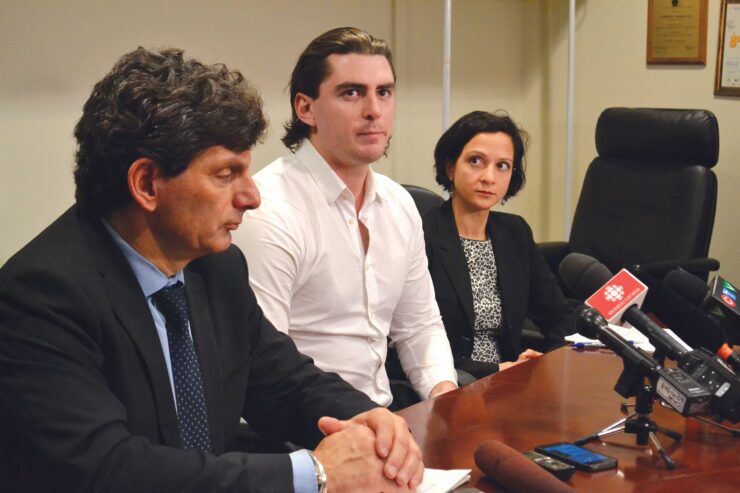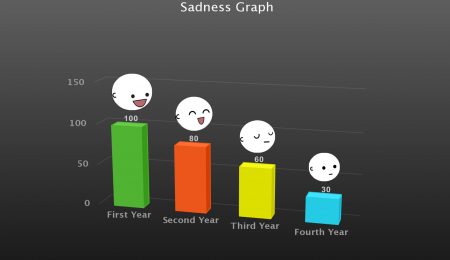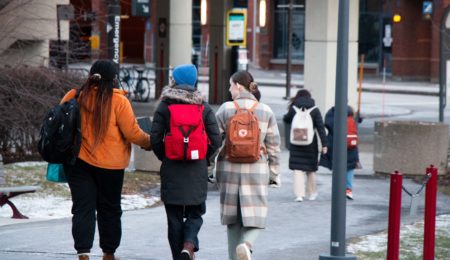Proceedings now slated to begin on Feb. 5, 2018
The sexual assault trial of two former University of Ottawa hockey players, David Foucher and Guillaume Donovan, which was scheduled to take place on August 21, has been pushed back to Feb. 5-16, 2018.
Both players were charged after allegedly sexually assaulting a Lakehead University student in February of 2014. The U of O consequently shut down the hockey team following a police investigation.
In the interim, 24 former members of the team who were not charged have launched a $6 million class action lawsuit against the U of O for defamation. The players allege that by eliminating the hockey team, many of their careers were put on hold, and that their reputations were tarnished due to the sexual assault allegations against their former teammates.
This is the second time that the trial of Foucher and Donovan has been delayed. Initially slotted to begin in August of 2016, the proceedings were delayed at the request of one of the defence attorneys due to a family emergency.
The Ministry of the Attorney General told the Fulcrum that the trial was delayed again after a request from the defence, but did not specify any further reason.
This comes as the debate around trial delays is heating up. A recent Supreme Court of Canada decision, R. v. Jordan, set a precedent around defendants who face excessive delays, ranging from 18 months in a provincial court to 30 months in federal court.
However, Ottawa criminal defence lawyer Anne-Marie McElroy told the Fulcrum that if the defence had asked for the delay, then they probably relinquished their right to use the delayed time to get the case thrown out.
But delays in criminal trials can have impacts outside of the courtroom as well.
“All members of our community who are involved in a criminal justice process are affected negatively by delays,” said Michael Spratt, an Ottawa-based criminal defence lawyer at Abergel Goldstein and Partners. He noted that trial delays can be a problem for all parties involved.
“Especially if you’re a complainant who has actually been a victim of a crime, one could only imagine the psychological effect that delays have, and that can result in revictimization over the months and years leading to a trial.”
And delays are just as bad if someone innocent is accused.
“You can also imagine an innocent accused who suffers from the stigmatization of a criminal charge,” Spratt added.
Overall, the delays can affect the public’s perception of the justice system as a whole.
“The community needs to see that justice is being done, with fair results delivered in a timely fashion, and delays can erode confidence in the justice system,” Spratt said.
The U of O’s media relations team told the Fulcrum that it would be “inappropriate” for the university to comment on “the trial, its delays or its outcome.”





